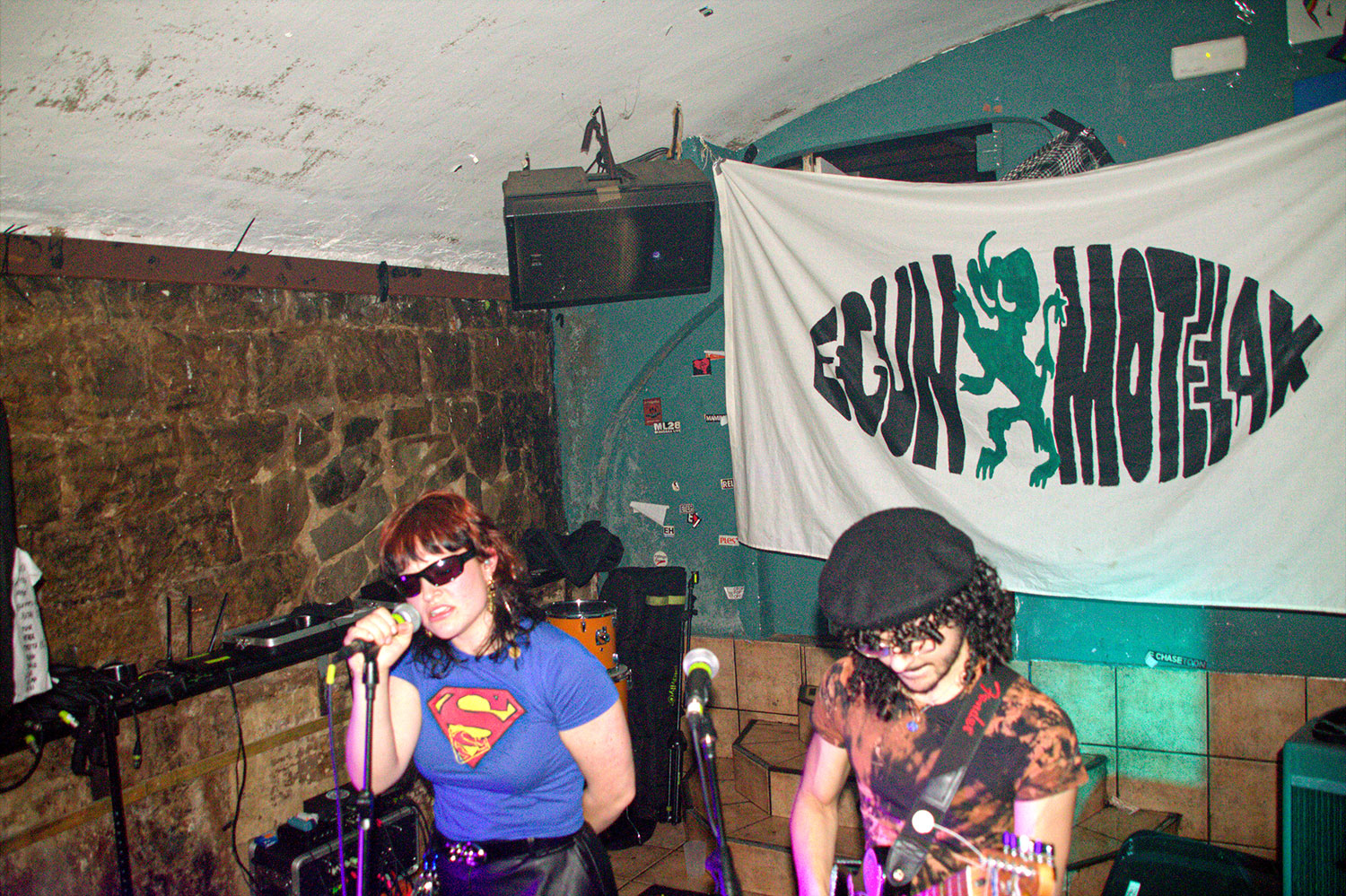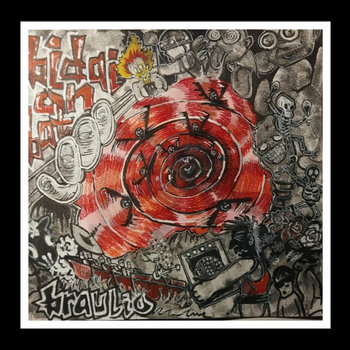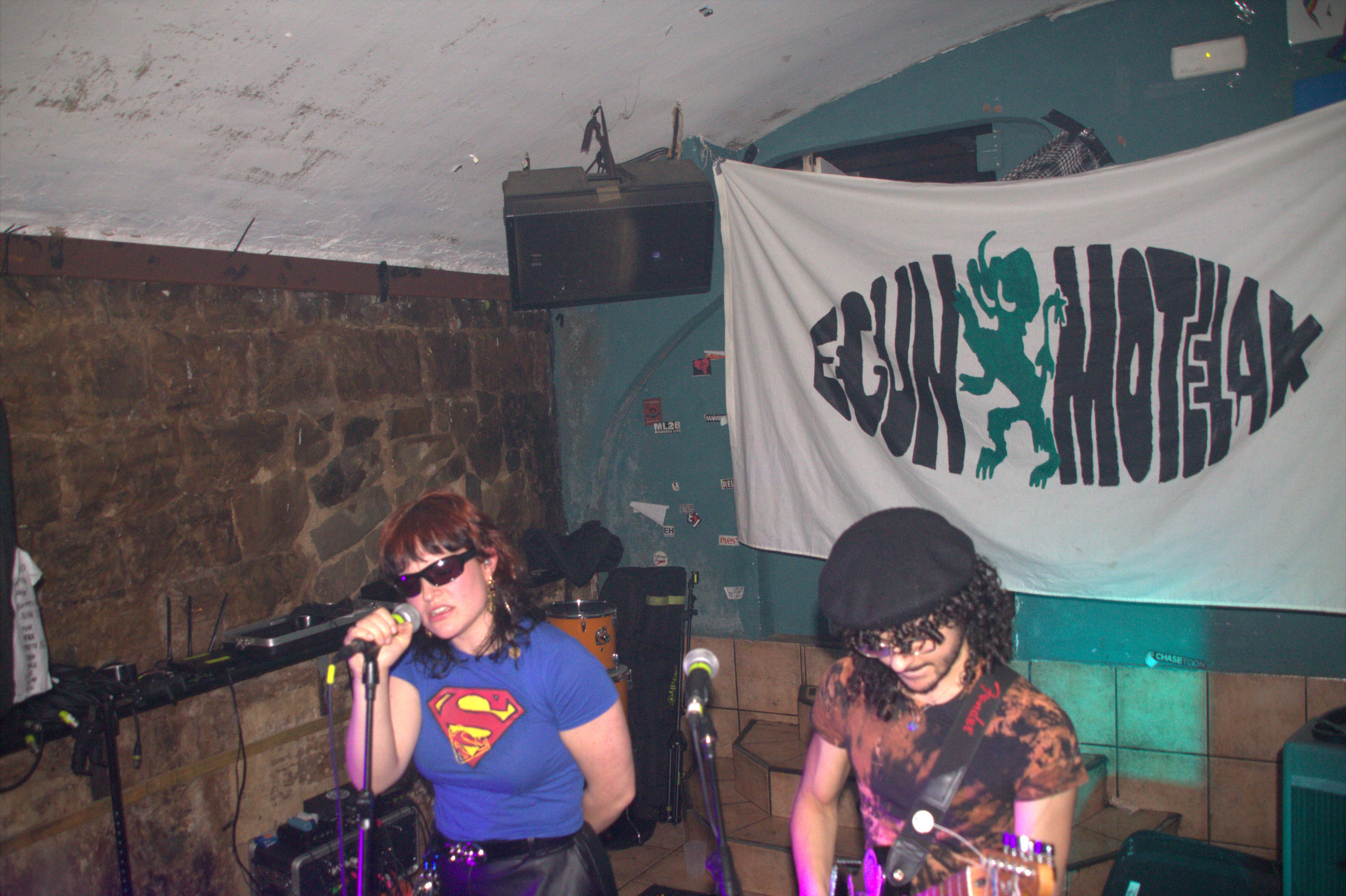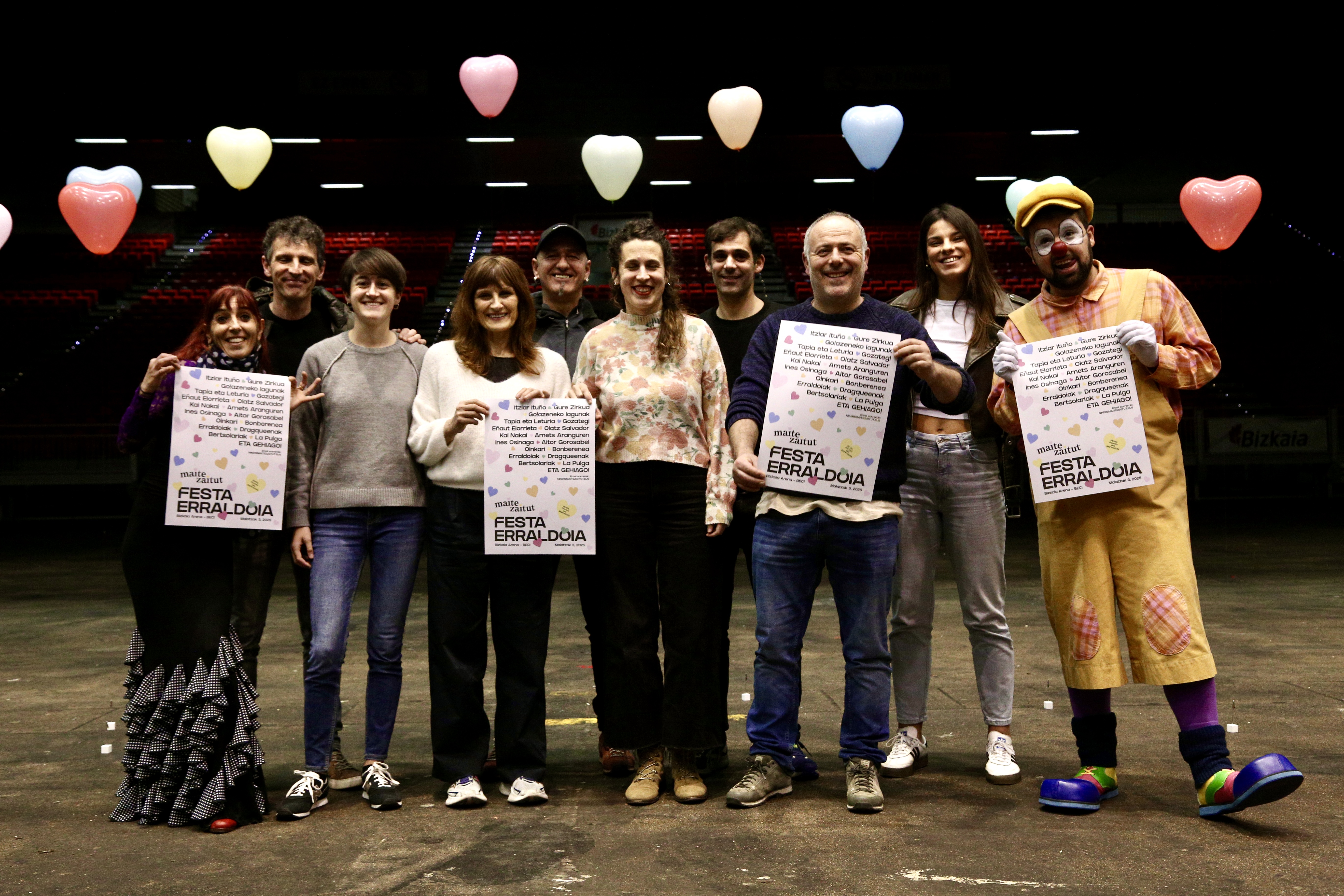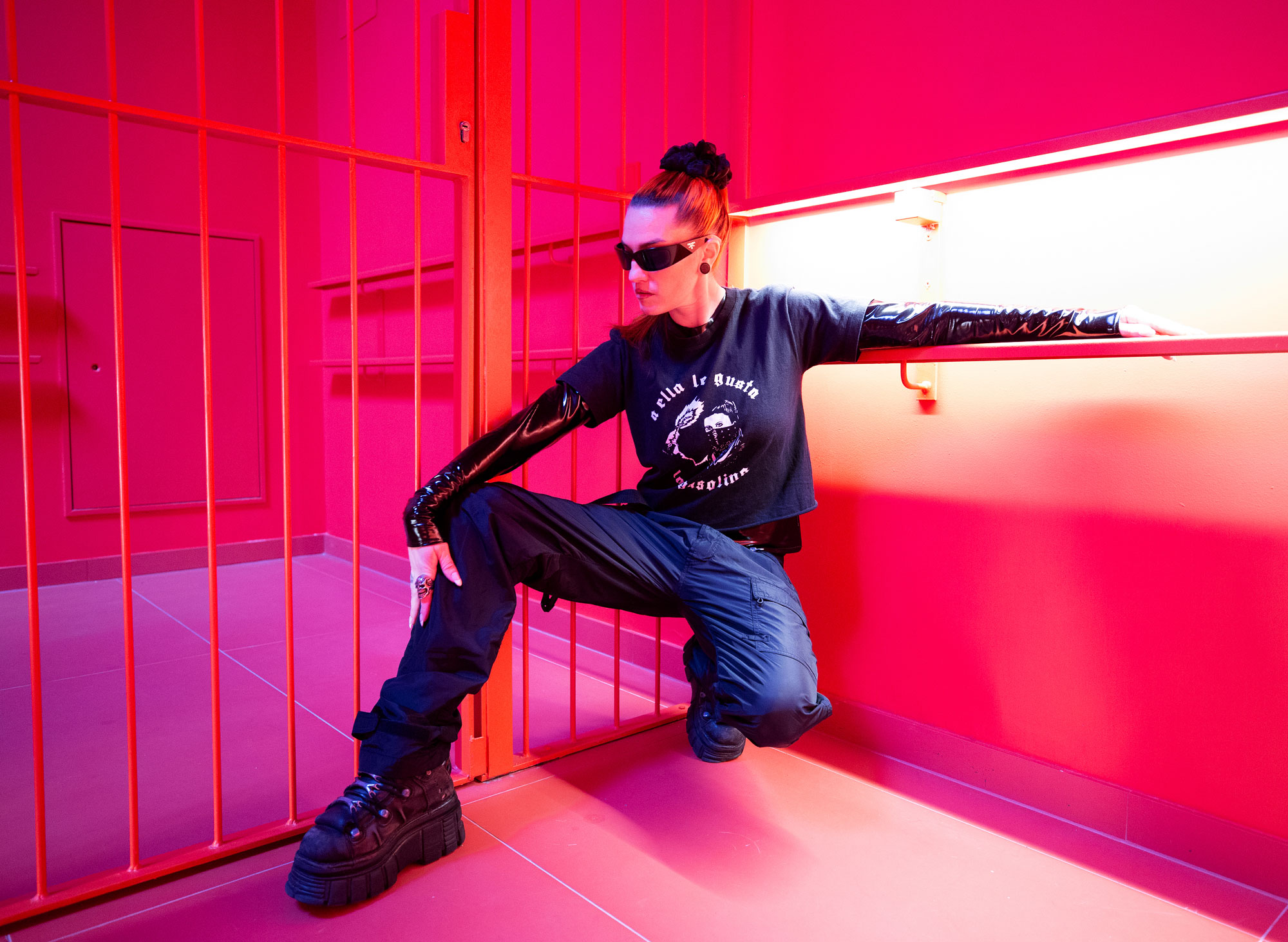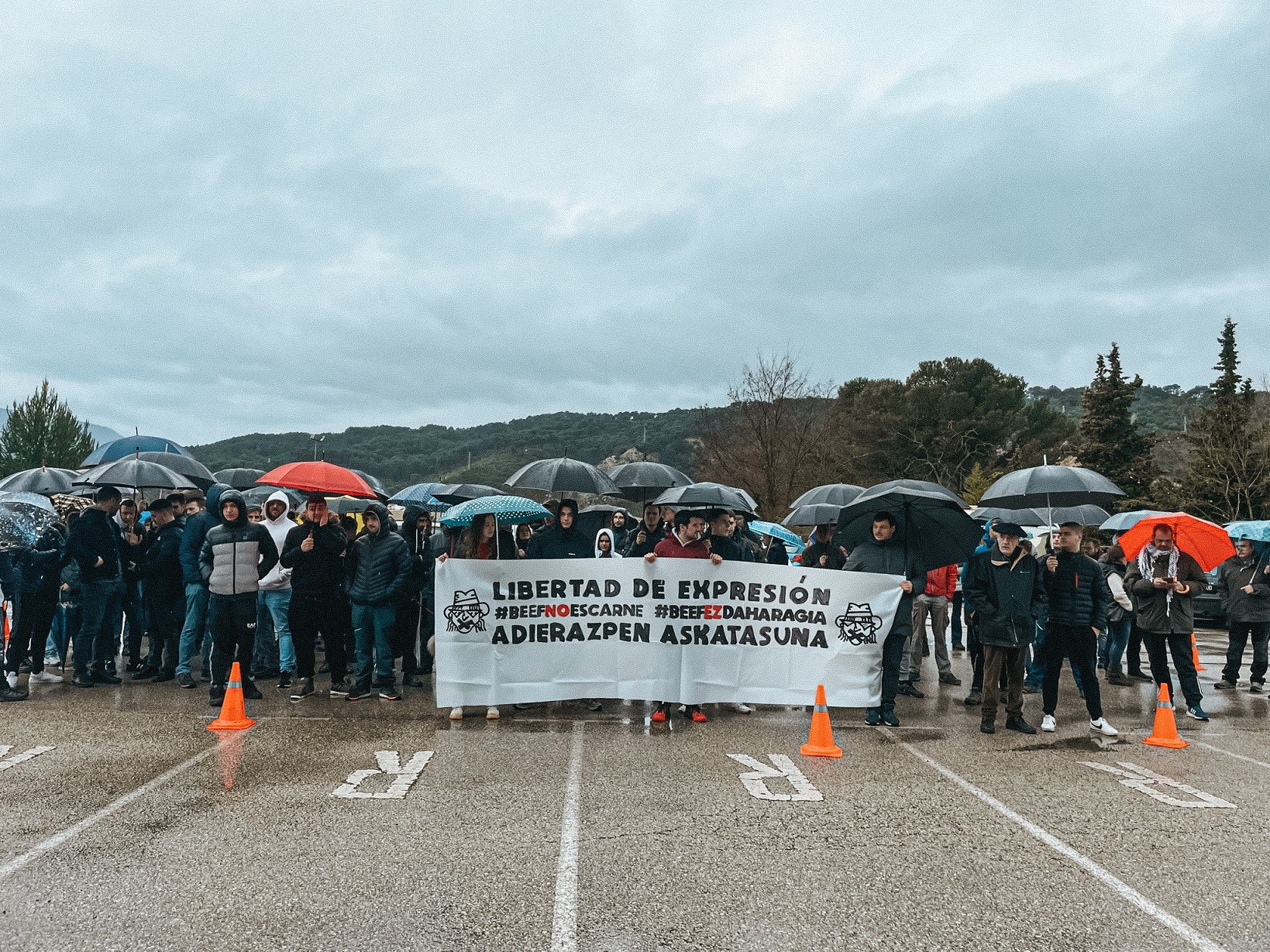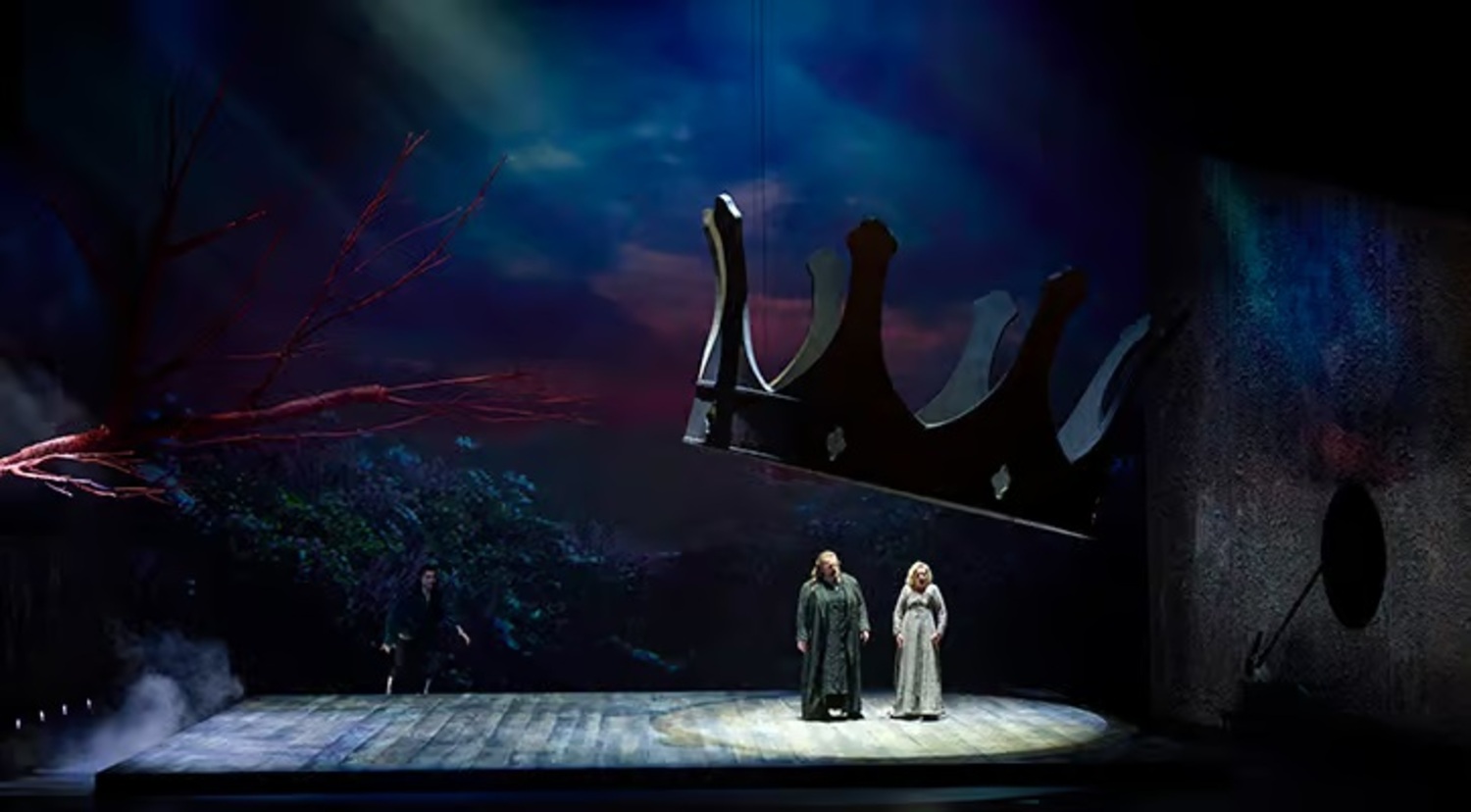"I'm not afraid to throw myself into a blind song."
- “Here I am.” Iban Urizar has his upper arm. This is a wet Wednesday in March at the Elgoibar bus station, it has been darkened and under its umbrella we have travelled the way to the bar. “Two rods, please.” He has had a heavy day, he is not accustomed to what promotional work requires. For those who have spent their whole lives in music minority circuits, the rules of the game that are here to undertake a personal project are fatal, forcing you to come out continuously, to raise your arm continuously: “Here I am.”
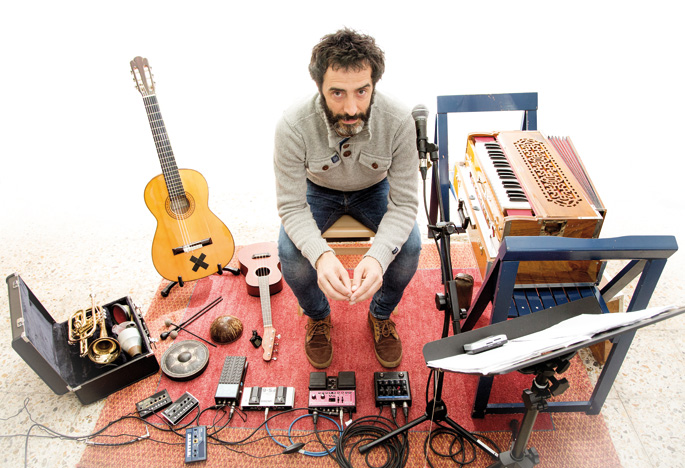
It is true that he has made an inverse journey with Amorante: he has just published his first work – postal sounds composed of five songs – although it started live a couple of years ago. Although he is “flipted” with the reception, he looks at the moment with caution. “We live in the Hype culture. At any time you can become an ephemeral artist. If I stop feeding my lover, surely no one will remember me within two months.” He's doing what Barrena asks him to do, taking advantage of the wave to show the project in decent conditions, playing in decent rooms, with the cartoons he loves the most. “The orbit in which I’ve moved helps me have this echo. Without a tour, I wouldn’t be where I am.”
It has a full resume: we've emptied the glass of beer to go through its entire trajectory. Urizar has pitted places of all kinds: his father had a wedding duo and he has had occasion to make replacements there; he was trumpet of the Zokoan group of Elgoibar; Huapachà Combo de Catalunya ran from place to place with the group of verbenas in Barcelona while attending the master of ethnomusicology; Joseba Bizarra recently participated in the free improvisation. Always on the second line. He's been a member of the municipal music band for almost 30 years. “Working in the band educates you a lot. When your duty is to have one more tooth in a gear of 50 people, all the ego escapes you.” It was in Andrakan where for the first time he worked as group leader, and then came Amorante: who started as therapy to overcome his complexes with his voice, has gradually become a showcase of his personal world.
Effect of icons
We left the bar looking for a snack to have breakfast. We have crossed the town square, the same place where they received Arnaldo Otegi a week ago. It's empty: neither cheats, nor ikurriñas, nor txalapartas. Neither bafles nor musicians. I have told you that there is a subject that is mentioned a great deal these days in the taverns: the role of musicians – artists in general – in all political acts. Urizar has never liked to use music for claims, although he is very respectful of what he does. I ask you whether in these places we do not yet have a very simplistic scheme of the committed artist that easily fits the microphone to cast four claims that gently and gently enter the ears, knowing that this will guarantee you a status in a given environment. It's affirmative. “In this country, many decisions have been made with these kinds of schemes. People who don't work in Euskera in their day-to-day lives have decided to create a group in Euskera, knowing that that would help them be someone in the music scene. That, artistically, is a fraud.”
We have once again visited the Epele, while talking about the Basque music scene. Urizar gets into a second bar and looks at the menu of the snacks. From the speakers you hear the rhythms of the reggaeton – seven months ago the skies and the earth were shaken, when it was announced that the City Hall had launched a campaign against the sexist messages to evict this musical style from the people’s taverns. “The third one is very good.” Chickpeas chopped with eggplant and tomato. “Herbivores?” No, but almost. They say the ham goes crazy. Good hams, of course. We sat down at the table next to the window, and I turned on the recorder again. “I have a theory: in this town you have created icons that mark what shapes each time and what doesn’t. However, there are musicians who are outside of these icons and who do not have such a media presence.” I asked him where he was in that scheme. Smiling, he replied: “I’ve fallen for Cool, but I’m quiet because I know what I do I do honestly.”
Esthetics of error
For Urizar, Amorant takes all his inputs, mixes them with a blender and offers the result as it is due to the situation of the listeners. “I feed my lover with all the things in my backpack. I was in danger of making a basket, of composing songs that had nothing to do with each other. Fortunately, I think everyone has a connection. That linkage is my contribution.” The cell phone on the table has shaken him. A new message. A well-known Basque writer has written to him asking where he can buy his album, as he has not found it in the megadgets of Elkar. Urizar laughs and says he's exhausted. He has edited 82 copies and has no intention of publishing more. “Whoever wants can hear it on the net.”
In fact, what he has published is not a record, but postal sounds, drawn by Alaitz Alberdi and Joseba Agirrezabalaga. Each postcard has a code that allows you to download the song from Bandcamp. The whole lot is kept in a vegetable paper envelope produced by Josune Galartza and created originamiz by Rafa Rodrigo. He has chosen this route consistently, as the CD accumulated for years has dust in the room – “the album, as a concept, is dead for me”. Although the musician who makes a album deserves recognition, he does not agree with the general laws for his work to be published that way. Urizar usually listens to music in digital format. Many times, with headphones, when you have to go for a walk somewhere. “I tell the students to be careful with headphones, but I’m the worst example.”
I told him that it is curious how, after a free improvisation, he has suddenly jumped into popular music codes. However, it seems to him that from this experimental world Amorante has a lot to do, for example, in the way of creating songs. “I’m not afraid to go blind when it comes to making a song. I'm able to do that because I've worked for many years. There's a concept that I really like: the aesthetics of error. Some electronics teams in the late 1990s started taking advantage of digital errors for creativity. In the trials and in the concerts, instead of hitting the leg, I try to catch the mistake and get to a place that I would not otherwise have been able to get there. That's the most interesting thing: what way I've come to reach the goal rather than where I've come. I like to risk, and I think that gives Amorante honesty.” You have to listen, to see what kind of wager is yours, if you make flamenco in Euskera, and in those cases you answer firmly that no, that Amorante is not a scam, that you will not copy anything in Euskera thinking that this will bring you success, that they are not good premeditated decisions in artistic proposals.
Common experiences
We finished dinner and went out into the street. As soon as you start dropping a few thicker drops, you realize you've forgotten the umbrella in the bar. Come back again. We have to move, it takes time and we still have to visit the test site. He goes there every two days, after dinner, after the kids have fallen asleep. He has found a place where you can play quietly without disturbing anyone. Next to the feed site of Cortaberria is the former headquarters of the fire brigade and today the Municipal Band of Elgoibar. Through the door you see the band's percussion instruments and lots of seats, each with a poster: “saxophone”, “elikoia”, “trumpet”. After crossing the room he arrives at the toilet, where Amorante tests. There he displays the rug every two days, repeating the ritual that always comes out different, with the edge of the urine and the shower watching, drinking a sip of water from the basin in front, between songs and songs.
He's raised the air. He has pulled one by one on the looperra carpet, the car, the trumpet, the harmonum, the guitar, the ukulele, the kalinba, the lectern – they say it is hard to remember words – and other instruments. I sat aside. He has given him time to play six songs: The one of the hen, with the ukulele in her hand, more rested than usual; Zugana Manuela, in the second place, making a remix of the song “not to become a heavy stone”; a new piece called Bruegel – in tribute to the painter Pieter Bruegel-, composed by the words of his uncle José Mari Ondartza; The song of the cannibal, I have told you about the radio apparatus that was going to put the instruments into the boxes, which is increasingly forcing you to play a different song. So he did it: he crouched on the ground, tuned a radio station and started playing with the pedals. A phrase from the radio announcer, no doubt poetic, has been turned on the locomotor: “Feeling dreams closer”. There are quite a few points of departure, because there it has gone “blind”, without knowing where it goes, in full improvisation. First he has put layers of voice, creating a solid harmonic base, on which he has thrown the words that came to him instantly, in a risky exercise that has lasted two or three minutes. It could just be a failed attempt. Or I could allow myself to exaggerate a little bit to end the chronicle above. But it has been very good.
Fini study. While Urizar is collecting upheavals, looking at the chaos that make up the cables, microphones and other artifacts on the bathroom carpet, I am in line with random observations as if in the music critique there has not been too much weight in the sonority and if judging a song other variables are not more fundamental, the context in which the song has arisen, the path that the musician has travelled to get there, if that would be a definitive search sincera.En Nothing new under the ozone, but for a wet Wednesday in March, what do you want?
Zuloa
Merina gris
Sonido Muchacho, 2025
-------------------------------------------------------
Euskal Herrian ez da orain arte horrelako musika elektronikorik egin. Esango nuke Merina Grisek historian euskaraz egin den elektronika eta hyperpop diskorik landuena egin... [+]
Gazteagotan baino lotsa handiagoa dauka, baina horrek ez dio saltsa askotan ibiltzeko gogoa kentzen Leire Zabalza Santestebani (Iruñea, 1990). Beste gauza askoren artean, Motxila 21 musika taldeko kidea da. Nabarmendu du musika gauza asko aldarrikatzeko bide izan... [+]
Bidai on bat
Braulio
Autoekoizpena, 2024
-----------------------------------------------------
Nik ez nioke talde bati Braulio izena jarriko; eta seguruenik inork gutxik hasiko luke lan bat sei minutuko iraupena duen kanta batekin. Baina hauei parra die eta horri esker... [+]
Hiuzz + Bloñ + Adur
Noiz: otsailaren 15ean.
Non: Iruñeko Aitzina tabernan (Egun Motelak kolektiboa).
--------------------------------------------
Larunbat goiza Iruñean. Neguko eguzkitan lanera doazen gizon –eta ez gizon– bakarti batzuk... [+]
Things aren’t easy in fact, and it will be for one reason or another, but lately I’ve bitten my tongue more than I should for these two things: the culture of the sold out and the FOMO – the latter perhaps has to be explained, because it’s not said so many times: the... [+]
Ultra
La Furia
Baga Biga, 2024
---------------------------------------------------------
Cascanteko La Furia-k bosgarren diskoa plazara atera du. Mimoz eta erraietatik, berarentzat funtsezkoak diren osagai horiekin, prestatu du honako pozima, pozoitsua eta aldi berean... [+]
EMEADEDEI + MAHL KOBAT
WHEN: February 2nd.
IN WHICH: In the youth center of Zuia, Murguía.
----------------------------------------------------
On September 20 of last year, we first heard about collective music in the profile of the social network they had just created:... [+]












